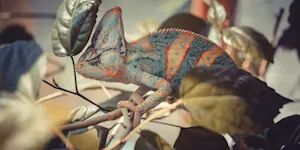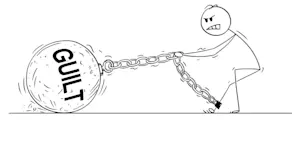What Makes This Word Tick
"Cavort" fills the mind with images of frolicsome movement; it's a verb that captures that carefree, playful bounding often seen in young children or animals. Imagine a puppy gleefully bounding through a field or kids skipping during summer days. It conveys not just movement, but a spirited, unreserved joy.
If Cavort Were a Person…
If "cavort" were a person, they'd be that friend who never fails to brighten a room with their lively energy. This person would have an infectious, youthful zest for life, always encouraging others to join in the fun or dance like nobody's watching, bringing out everyone's inner child.
How This Word Has Changed Over Time
The essence of cavorting has remained snappy and spirited throughout time. Historically, it conjures scenes of playful frolicking or exuberant activity. While the underlying sentiment hasn’t shifted much, cavorting today might also be linked with less physical activities, like virtual flirting on social media — a different kind of social playfulness.
Old Sayings and Proverbs That Use Cavort
While "cavort" doesn't often find its way into traditional proverbs or sayings, the idea behind it — exuberant, joyful activity — is universal. Picture phrases like "dance with merriment" or "frolic and play," reflecting similar spirits of lightheartedness across cultures.
Surprising Facts About Cavort
You might be interested to know that the word "cavort" was first seen in the 19th century. Its boisterous nature comes from a probable blend of "curvet," referring to a horse's prance, and playful influences, reflecting the joy of uninhibited movement.
Out and About With This Word
Picture cavorting as seen in a sunny park: dogs romping with tails a-wag or kids bursting with laughter as they skip through sprinklers. Cavorting is all about seizing the moment, wherever one can find joy in physical or social activity.
Pop Culture Moments Where Cavort Was Used
Think of classic musicals where characters break into spontaneous dance numbers, cavorting in an expression of youthful or rebellious joy. Remember the ecstatic scenes in "Grease" during school dances? There was a cavorting spirit in every jive and shimmy.
The Word in Literature
Authors sometimes paint rich imagery with "cavort," using it to add a splash of vitality to scenes. One might find it in delightful descriptions of characters letting loose amidst the constraints of everyday life, especially in genres focused on comedy or romance.
Moments in History with Cavort
The Jazz Age of the 1920s was all about cavorting! With its swing dance eras and lively parties, people truly embraced a lifestyle of celebration and joy. "Cavort" would fit right in with the spirit of flapper outfits and Charleston moves marking a vibrant historical rhythm.
This Word Around the World
The act of cavorting is universal, though the word itself might translate to different playful interpretations worldwide. In Spanish, "revolotear" or in French, “gambader,” both reflect a similar cheerfulness associated with the lighthearted spontaneity and movement of cavorting.
Where Does It Come From?
The intriguing etymology of "cavort" is likely tied to "curvet," a term for a horse leap, joined with influences of other playful words, concocting this dynamic descriptor. It officially danced into the English language scenes around the mid-19th century.
How People Misuse This Word
Some people mistakenly use "cavort" to describe any sort of gathering, even if it lacks the high spirits implied by the verb. It’s not just about gathering; it’s about a lively, more animated type of involvement.
Words It’s Often Confused With
Frolic: Both involve playful movement, but cavorting suggests even more exuberance.
Prance: Similar in nature yet often more about dainty or majestic show rather than outright play.
Revel: Focuses more on the joy of celebration, not specifically involving physical movement like cavorting.
Additional Synonyms and Antonyms
When considering synonyms, think of "gambol," "frolic," or "prance." As for antonyms, "laze," "idle," or "rest" contrast with the bounding energy of cavorting.
Want to Try It Out in a Sentence?
Sure thing! "The children cavorted on the grassy lawn, their laughter ringing through the air like music."
















